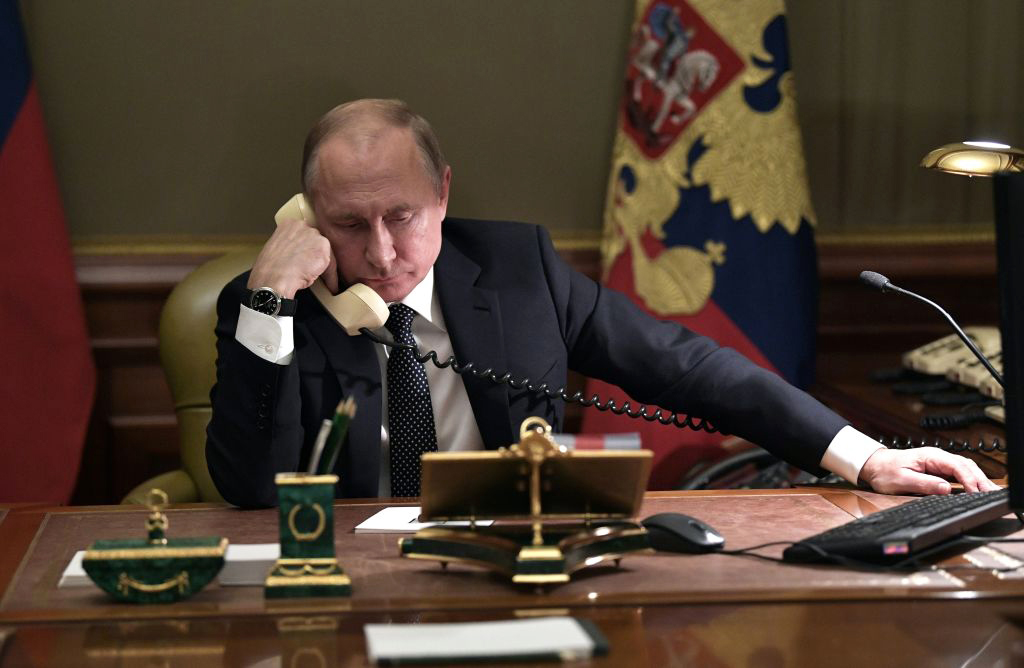
In 2017, Ben Rhodes, President Obama’s lead foreign policy adviser during his eight years in office, conceded in a television interview that the administration had, for too long, got Russia wrong. It took the White House a while to realise, Rhodes said, that Vladimir Putin did not act in Russia’s interests. He acted in his own. Policies that hurt Russia or its people would not bother or restrain Putin unless they hurt him personally.
That is perhaps the fundamental problem the West faces today in trying to curb Putin. Sanctions will have their limits. Russian elites have been enriched at the pleasure of Putin. They bow to him, not the other way around. Any displeasure they feel at their relative impoverishment (and it will only be relative) seems unlikely to halt Putin’s long-planned invasion of Ukraine. Flagship measures against well-known Russian oligarchs – while an easy and arresting headline – may be beside the point.
In any case, Johnson’s measures on the night of 24 February target only a handful of individuals. What they really aim at is the wider economic isolation of Russia, and an end to British involvement in the supplying of the Russian war machine: Rostec, the multibillion-dollar Russian conglomerate, is one of five major Russian defence companies to be added to the sanctions list. The assets of any entity or individual on the sanctions list must now be frozen by any British company that interacts with them, and UK companies are forbidden to trade with them. Other key measures include an asset freeze on VTB, Russia’s second-largest bank, and a ban on many export licences, preventing the continued sale of technical parts or equipment to Russia’s military.
[See also: Putin has substituted his own interests for those of the Russian state]
Two questions follow. First, as a Labour shadow frontbencher put it to me in Westminster after Johnson’s statement: there is “a lot left out” in this sanctions package, however considerable it may be. Why? No 10 stresses that sanctions will be ratcheted up further in the coming days and weeks, and the delay is no longer conditional on any further action by Russia (what more, after all, would it take?). But the UK wishes to act in concert with allies, Downing Street said, and must lay necessary legislation not due until next week; there will be no emergency session of parliament this weekend.
There seems to be an evident flaw in this ratcheted approach: the many oligarchs who are at risk of being sanctioned have been given an amber warning to withdraw their assets while they still can. No 10 suggested to the New Statesman that sanctions would be so globally wide-ranging as to leave only Russia as a home for any oligarch’s assets. But why leave even that route open today, when their assets could instead be locked inside the UK?
Second, what took the West so long? The Integrated Review, the guiding foreign policy document of Johnson’s government, released last year, identified Russia as “the most acute direct threat to the UK”, and recognised that “Russia will be more active around the wider European neighbourhood”. The document specifically cited Ukraine, and reaffirmed the UK’s commitment to continuing “to build the capacity of its [Ukraine’s] armed forces”.
But why, then, did we have export licences in place that helped to build Russia’s forces? Why, until now, did we continue to give Russian banks access to the City, or give the Russian state the ability to raise sovereign debt here, or give Russian oligarchs with ties to Putin access to London? Why did it take the largest European land invasion since the Second World War to wake Britain from decades of amorality?





